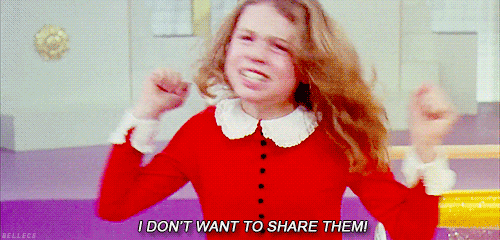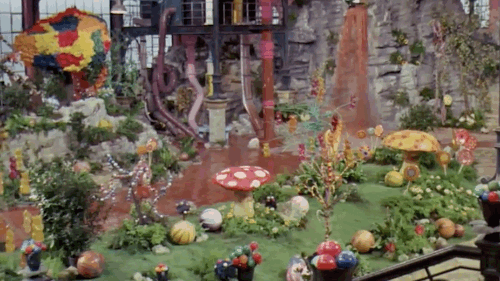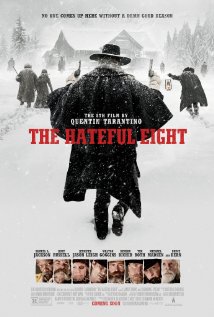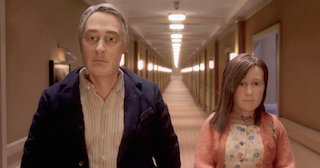We here at Redeeming Culture were devastated to learn of Gene Wilder’s passing this week. In honor of his life and work, we invite you to come with us on this quick tour through possibly his most well-known role.
• • •
Come along, come along. So much time and so little to do.
Willy Wonka’s wondrous world doesn’t appear until about halfway through the film, but the factory (and the man who runs it) loom large over every minute, from the opening “Candyman” song. His world is bizarre and magical, mystical and unbelievable. Amid the sugary sorcery, it’s shot through with a curious little morality tale, with four colorful sinners and their parents getting their comeuppance at the hands of this magical factory.
But while the film goes out of its way to talk (and sing) about vices, it barely spares a word for the virtue of childlike wonder and honesty, instead letting Charlie Bucket’s actions speak for themselves.
The Four Deadly Sins?
Augustus Gloop, Violet Beauregarde, Veruca Salt, and Mike Teevee are comparatively one-note characters. Augustus eats a lot. Violet chews gum. Veruca is greedy. Mike is impatient. But taken at their core, they’re more than just their obvious flaws.
Augustus is a personification of excess; he is clearly overweight from overeating, and he meets his end quickly at the hands of his own greed, which overwhelms any care for others that he might have had.
Violet is a personification of overcompetitiveness as she trumpets her records and finds over her friend, and eventually drops out as her need to be the first leads to her becoming the first human blueberry.
 Veruca is, of course, a personification of greed in what might be the least subtle subtext in the entirety of Western culture. She is eliminated from the group whilst literally singing about how she wants everything, and she wants it now.
Veruca is, of course, a personification of greed in what might be the least subtle subtext in the entirety of Western culture. She is eliminated from the group whilst literally singing about how she wants everything, and she wants it now.
Mike is slightly more three-dimensional, but he still personifies impatience. He gets frustrated with the reporters, doesn’t want to wait to see the awesome things in the factory, and gets washed out by impatiently trying untested technology.
The film makes a great case that these are the four “deadly sins” of our modern world: excess, competitiveness, greed, and impatience. We can see something of ourselves and people around us in the four evil children. Their one-note, obsessive personalities are simply easier to find than the sins in our own hearts.
Pure Imagination
By contrast, Charlie is a dreamer. But he, like us, lives in a cynical world. In our modern life, we have no room for hope or dreams or imagination. This world ignores the dreamer and tells the imagination to step aside in favor of the cold, hard truth. Charlie isn’t going to win the golden ticket. You can count him out.
 He is on the verge of giving in to this despair at a couple of points in the film; when he meets his mother at work, and when he lays crying in his bed because the final ticket has been found. He revisits that feeling once again as he discovers that he’s blown his only chance at that lifetime supply of chocolate, and that the great wonders within the factory will only be a memory for him. He’s not expecting anything as he places the gobstopper on Wonka’s desk, but even in that moment, he seems to still be hopeful; he doesn’t hang his head or depart with the intent to sell Wonka out to Slugworth.
He is on the verge of giving in to this despair at a couple of points in the film; when he meets his mother at work, and when he lays crying in his bed because the final ticket has been found. He revisits that feeling once again as he discovers that he’s blown his only chance at that lifetime supply of chocolate, and that the great wonders within the factory will only be a memory for him. He’s not expecting anything as he places the gobstopper on Wonka’s desk, but even in that moment, he seems to still be hopeful; he doesn’t hang his head or depart with the intent to sell Wonka out to Slugworth.
The movie doesn’t just affirm Charlie’s hopefulness; it rewards it, as the despondent Charlie indulges his dream by opening the fourth Wonka bar and catches the glimmer of gold under the wrapper. It rewards it as he burps and begins to descend back toward the floor. And it rewards it in a BIG way as his honesty is rewarded with a prize beyond anything he could imagine.
Virtue and Reward
But Charlie isn’t rewarded because he’s virtuous. He’s not even rewarded because of his lack of vice; Charlie steals Fizzy Lifting Drinks, and Wonka makes it clear that this was wrong. Charlie is rewarded long before that, though; before he burps, before the Inventing Room, before the chocolate river, even before he enters the gates of the Wonka factory.
[pullquote]He’s rewarded, despite exerting no effort whatsoever, when he finds a golden ticket in his chocolate bar.[/pullquote] He’s rewarded, despite exerting no effort whatsoever, when he finds a golden ticket in his chocolate bar.
He didn’t even buy the bar with his own money. He found money in the gutter. He wasn’t trying or expecting to win the ticket; for all he knew, the five had been found already.
It’s pretty similar to the way I became a Christian. I didn’t have any ability to seek Christ, or expend any effort that got me closer to a changed heart. Instead, I was chosen, pulled up out of spiritual poverty, and given something I had not earned. All this despite my excess, competitiveness, greed, and impatience; God wiped those all away when He changed my heart.
That all feels like it comes alive in this film. Gene Wilder’s words to Peter Ostrum as Charlie in the elevator are so tender and loving, especially after his angry outburst moments before. He’s not angry; instead, he’s giving the gift of a lifetime. The gift of life, even. It’s something I’ve never forgotten.
And it brings with it an imaginative hope I sincerely pray that I never lose.
• • •
Thanks for reading Redeeming Culture. Our condolences go out to the incomparable Gene Wilder’s family in this troubling time, and we would like to thank him for his incredible lifetime of work. He’s left a hole in show business and in our hearts that will be impossible to fill. Godspeed, Mr. Wilder.


